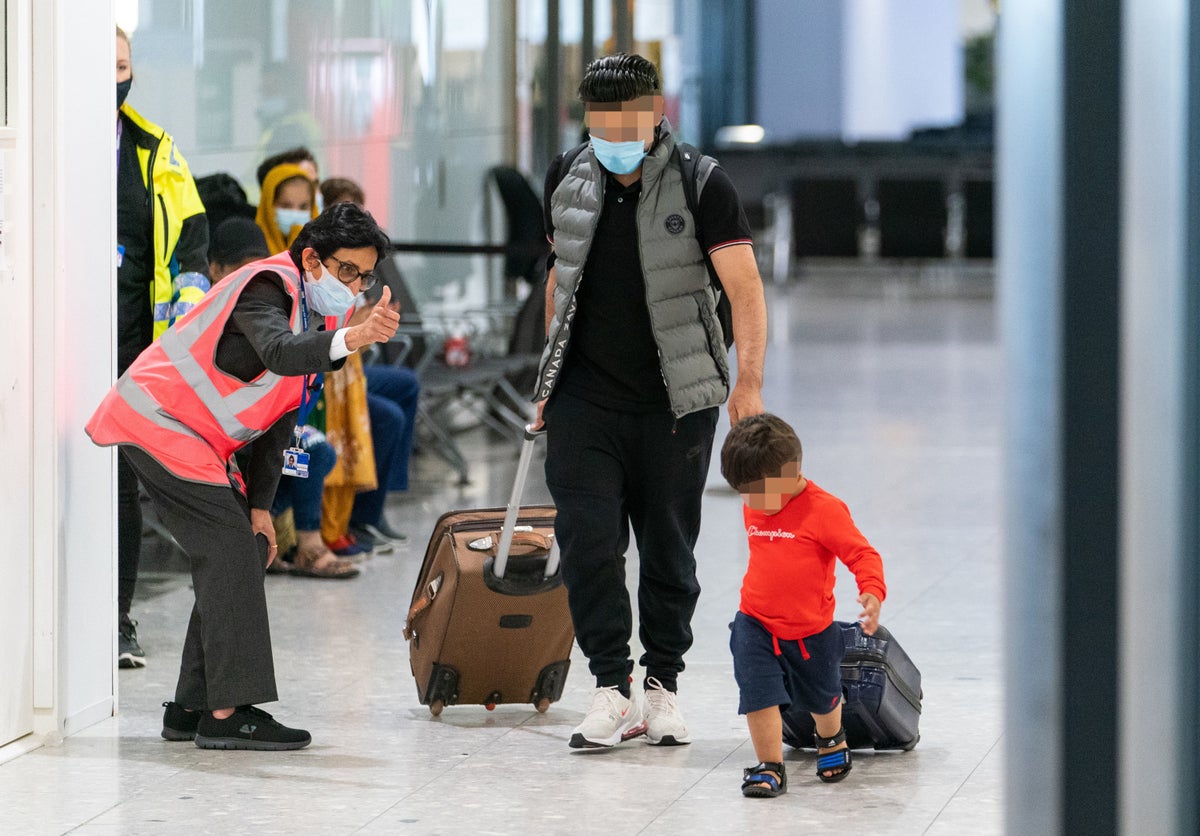
Afghan refugees in the UK are presenting as homeless to councils after being turfed out of government hotels in “shameful” evictions.
The families, many of whom worked with or for the British government and armed forces in Afghanistan, came to the UK following the Taliban takeover in 2021.
All 8,000 Afghans living in bridging hotels were served with eviction notices by the end of May and were given three months by the government to find their own accommodation.
Now, the Local Government Association (LGA), which represents councils, has warned it was hearing reports that up to 20 per cent of those evicted have declared themselves homeless to local authorities. The hotels are being emptied in a staggered way, with those in the smaller hotels being moved out first.
Labour MP Dan Jarvis, who served in Afghanistan, described the fact that families are becoming homeless as “shameful”. He said it was reasonable to move people out of hotels, but not at the pace that the government was doing it.
He told The Independent: “These are people who have come here at our invitation. The UK made an offer to them because of the nature of their service alongside UK armed forces in Afghanistan. The notion that - having done that - we subsequently allow them to become homeless, I think is shameful.”
He continued: “It’s in nobody’s interests to have Afghans homeless in the UK. Government needs to be a bit more pragmatic and provide more time to transition them into permanent accommodation.”
He described the decision to evict the Afghans as “morally deeply unpleasant” and added that it was also “deeply flawed from a public policy perspective because it creates a whole new set of problems”.
“It’s in nobody’s interests to have hundreds and hundreds of Afghans homeless across the country,” he said.
Cllr Shaun Davies, chair of the LGA, said: “Hotels have already begun to close to Afghan households across the country and - as we feared - councils are already seeing families presenting to them as homeless as a result.
“It is wrong that some families are having to leave Home Office-funded hotels only to then end up having to move into temporary accommodation.”
Cllr Davies warned that the situation “is likely to worsen significantly as the Home Office stops paying for the remaining bridging hotels for Afghan families in the coming days and weeks.”
In Northampton, a council spokesperson said that around 50 people have nowhere to go when they are evicted. There are 179 Afghans in hotels in the area who have received notice to quit by the end of August.
A spokesperson for West Northamptonshire Council told local media: “We are currently looking at around 50 individuals who do not have a viable option at the end of the rehousing process and who the council will need to assess a homelessness duty for.
“Many of these are single men so we are also exploring an additional, bespoke option based on the model of the Homes for Ukraine sponsorship scheme.”
The Independent has been campaigning for the government to honour our debt to Afghans who supported the British military and grant them asylum in the UK.
A government spokesperson said: “Hotels are not, and were never designed to be, long-term accommodation and it is not in Afghans’ best interests to be living in hotel accommodation for months or years on end.
“We’ve seen good progress with Afghans leaving hotels, with 10,500 Afghans so far provided with homes. We will continue to provide extensive support, backed by £285 million of new funding to speed up the resettlement of Afghans into permanent accommodation.”







